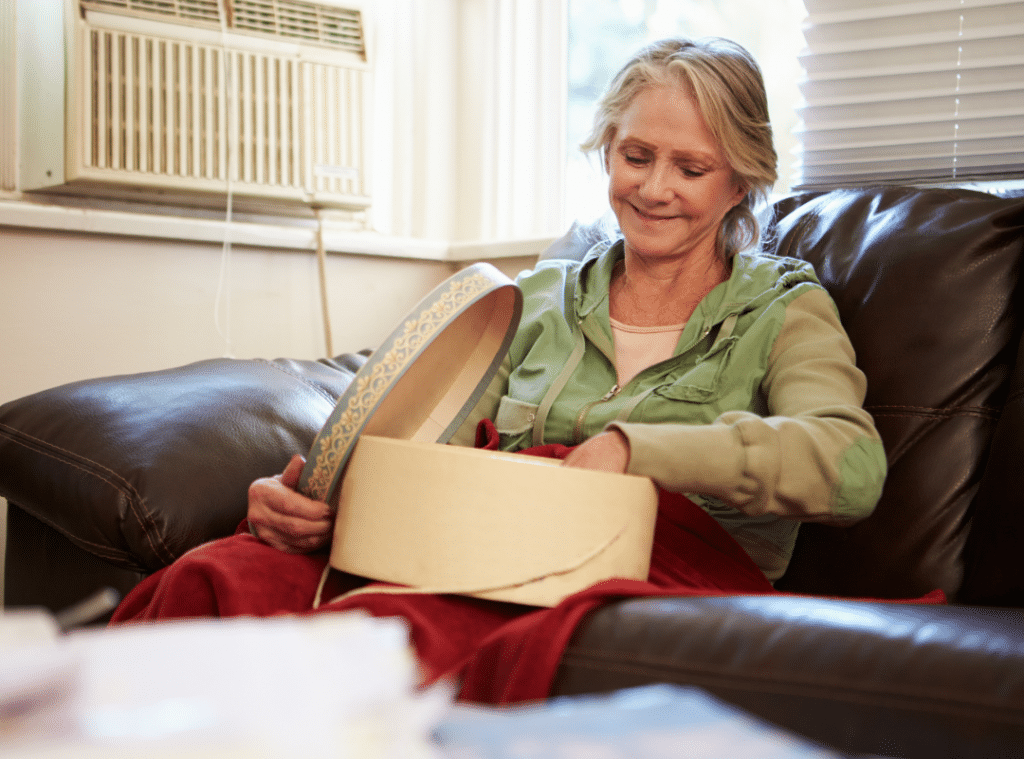Memory Aids for Seniors in America: Simple Tips for Better Recall
You might be surprised at how memory aids can enhance everyday life for seniors in America, especially with the support of Westmont Living. You can improve recall and foster a sense of independence by incorporating simple strategies like sticky notes, digital calendars, and pill organizers. Consistency in using these tools is essential, and with the right techniques, you can create a routine that feels natural. But what about the latest technology? There are innovative tools out there that could change how you manage your daily tasks and appointments, and with Westmont Living’s guidance, you’ll want to know how to make the most of them.
Benefits of Memory Aids
Memory aids can greatly enhance your daily life, especially if you’re managing challenges related to forgetfulness. For the elderly, these tools provide significant benefits that can improve their quality of life.
First, memory aids reduce anxiety by providing clear reminders, allowing seniors to confidently navigate daily tasks. This sense of security promotes independence, enabling them to manage their schedules and responsibilities without constant assistance.
Moreover, effective memory aids improve safety. By reminding seniors about essential tasks—like taking medication or attending appointments—you can help them avoid potential hazards and guarantee their well-being.
These aids also support routine, creating stability and comfort through familiar patterns.
Importantly, using memory aids boosts self-esteem. When seniors complete tasks with the help of these tools, they feel empowered and more in control of their lives. Additionally, addressing depression and memory loss can further enhance the effectiveness of these aids, ensuring that seniors maintain optimal cognitive function.
By choosing appropriate memory aids for the elderly, you can foster a supportive environment that encourages autonomy and dignity. Regularly evaluating the effectiveness of these aids is vital to confirm they meet the evolving needs of your loved ones.
Ultimately, memory aids can transform daily living, making life more manageable and fulfilling for seniors.

Types of Memory Aids
As you explore ways to enhance daily living for seniors, it’s crucial to contemplate the various types of memory aids available. These memory aids for dementia can greatly improve daily functioning and quality of life.
Digital clocks and calendars with large displays help with orientation and reduce confusion. Reminder apps and devices send timely alerts for appointments and tasks, ensuring nothing is overlooked. Sticky notes and labels serve as visual cues on common items, providing immediate reminders that are easy to spot.
Photo albums and memory books stimulate memories and encourage meaningful conversations, especially when labeled. Pill organizers simplify the process for those managing medications and guarantee proper adherence to regimens.
Combining these aids can create a supportive environment that fosters independence while minimizing anxiety. It’s important to tailor these tools to individual preferences and maintain consistency in their use. Additionally, engaging activities like music therapy can enhance cognitive health and support memory retention.
Regularly reviewing and updating these memory aids guarantees they remain effective as needs change. By thoughtfully implementing these strategies, you can help seniors navigate their daily lives with confidence and dignity.

Using Technology for Reminders
Technology offers powerful tools for managing daily tasks and appointments. You can leverage various memory aid products to help you stay organized and focused.
Voice-activated assistants like Alexa or Google Home can set reminders for meals, medication, and appointments, making it easier to track important tasks without remembering everything yourself.
Reminder apps on your smartphone provide customizable alerts, ensuring you never miss a critical event. You might also consider integrating smart home devices to create a cohesive reminder system throughout your living space.
Visual displays, such as digital photo frames, can show reminders and important information, keeping essential tasks top of mind.
Audio reminders can reinforce your schedule, offering gentle nudges when needed. These technological solutions enhance your independence and promote a sense of control over your daily routine, contributing to a quiet revolution in independent living. By embracing these memory aid products, you can greatly improve your quality of life and reduce stress for both yourself and your family.
Tips for Maximizing Effectiveness
To get the most out of your memory aids, it’s important to personalize the tools you use. Tailoring memory aids for adults to fit individual preferences can greatly enhance engagement and effectiveness.
For instance, if a loved one prefers visual reminders, incorporate colorful sticky notes or labeled photo albums. Consistency is key; place these aids in familiar locations to create a comforting routine.
Be patient and supportive as you introduce new tools. Gradually integrating memory aids allows for a smoother change and greater acceptance.
Simplifying instructions can also help prevent confusion—use clear, concise language when explaining how to use devices or reminders.
Regularly reviewing and updating memory aids guarantees they remain relevant to current needs. Check in with your loved one to assess which aids are working and which may need adjustment.
This ongoing evaluation fosters a sense of collaboration and empowerment. Engaging in mentally stimulating activities can also enhance cognitive health and improve the effectiveness of memory aids.
Impact on Daily Life
Memory aids can markedly transform daily life for seniors, enhancing their overall functioning and autonomy. By integrating memory aids for seniors in America, you’re empowering yourself or your loved ones to confidently tackle daily tasks. These tools help maintain routines, making remembering appointments, medications, and social engagements easier.
With effective memory aids, you’ll notice a significant anxiety reduction associated with forgetfulness. Promoting independence means you’ll feel more in control of daily schedules and responsibilities. This newfound autonomy boosts self-esteem and enriches social interactions, fostering a stronger sense of community and connection.
Moreover, these aids can alleviate some of the caregivers’ stress, allowing them to focus on meaningful interactions rather than constantly reminding their loved ones.
When seniors engage with memory aids consistently, they can preserve their dignity and sense of self.
Incorporating memory aids into your daily routine is like planting seeds in a garden; with a little care and attention, they can flourish and help you nurture your independence. By utilizing simple tools and technology, you’re not just enhancing recall—you’re enriching your life. Embrace these strategies from Westmont Living, and watch your confidence grow, allowing you to savor each moment without worrying about forgetting. For more tips and support, feel free to reach out to us at 858-456-1233. Remember, every small step you take can lead to a more vibrant, fulfilling day.
How Do The Costs Of Moving Into A Quality Senior Care Community Compare With The Costs Of Staying At Home?Compare The Costs of Senior Living vs Staying at Home
Frequently Asked Questions About Memory Aids and Support for Seniors
What is the best memory aid for seniors?
The best memory aids for seniors often include simple tools like calendars, reminders, and to-do lists, which can help organize daily tasks. Engaging in mentally stimulating activities such as puzzles, reading, and social interaction can also improve memory retention.
What medication is used to improve memory in the elderly?
Medications like cholinesterase inhibitors (e.g., Donepezil or Rivastigmine) are often prescribed to improve memory in conditions like Alzheimer’s. However, these medications should only be used under a doctor’s supervision, as their effectiveness varies depending on the individual and underlying causes of memory loss.
How to help with memory loss in the elderly?
Helping seniors with memory loss involves creating a structured and supportive environment, encouraging physical and mental exercise, and providing a healthy diet rich in brain-friendly nutrients. Additionally, routine check-ups with healthcare professionals can address any underlying medical issues contributing to memory decline.
What does the Mayo Clinic recommend for memory loss?
The Mayo Clinic suggests addressing memory loss through healthy lifestyle changes, such as regular exercise, proper sleep, and a balanced diet. They also recommend cognitive training, managing stress, and consulting a healthcare provider to rule out or treat underlying conditions affecting memory.









